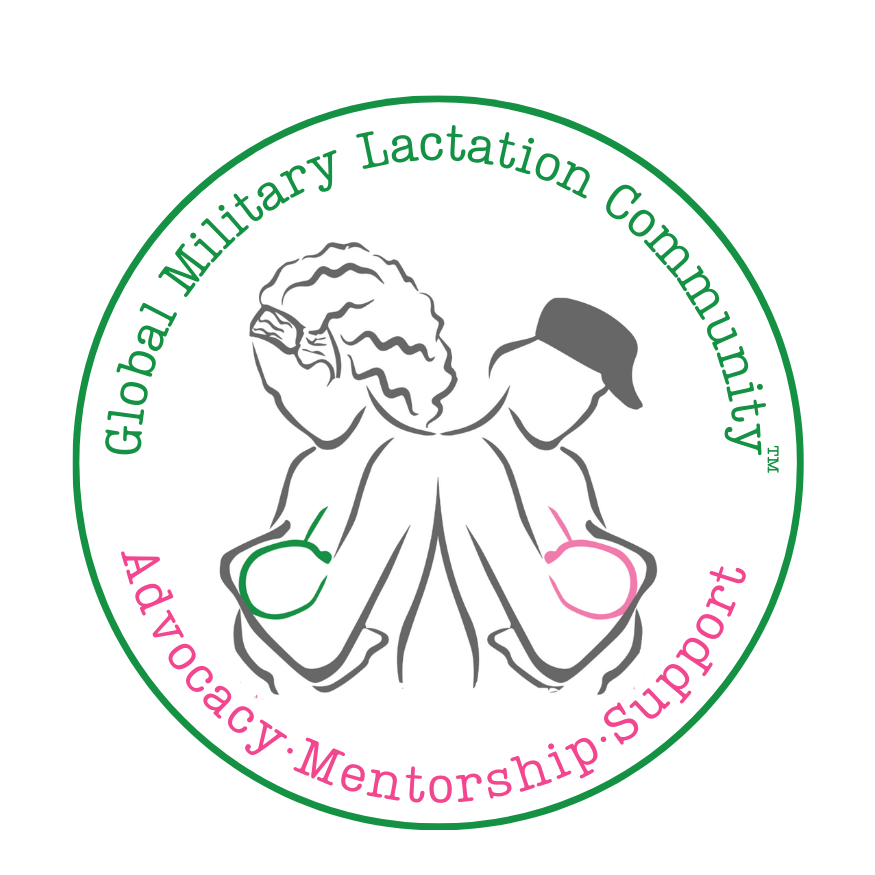COVID-19 Update
As 2020 comes to a close, we here at Mom2Mom Global and Breastfeeding in Combat Boots have faced with you, our military family, the unique challenges of navigating a year like no other. Together, we have weathered the pandemic, lockdowns, virtual work and schooling, extended deployments, separations, and PCS's, birthing in a pandemic, and remote lactation support.
As always, we strive to provide accurate, up to date information to breastfeeding military families, supervisors, healthcare providers, and community supporters. And with the FDA and international approval of the new mRNA vaccines, there is hope on the horizon that by this time next year, we'll be operating in a world that's safe from this disease. Everything about this virus is novel, and the vaccine is no different. There are many concerns about the safety of such a new vaccine, which must be weighed against the risks of catching the disease. To make matters more confusing, we are receiving new information, new data, and new position statements daily. We wanted to find a way to sift through the data and provide pregnant and breastfeeding military families with the information we have about what we know, and what we don't know, so that each individual can make the best-informed decisions for themselves and their families.
On Dec. 18, 2020, we hosted a Facebook Live Panel Q&A on the Covid19 vaccine and its implications for pregnant and lactating people. Facilitated by our Social Media Manager Selina Maldonado, the panel featured two distinguished experts in the field of maternal-child health, Dr. Sekeita Lewis-Johnson and Dr. Cecilia Tomori. Rounding out our panel were members of our social media team Air Force Dr. Lindsay Snow, Navy nurse Andra Wilke, Veteran nurse and IBCLC Marilyn Dukes, as well as our Development and Outreach Director Maria Batlle.
Key points for those who don't have time to watch the whole video:
The vaccine uses mRNA technology which is new in use, but has been in development for years. The vaccine does not contain any live virus, or any virus at all, so it is not considered a risk for pregnant or lactating people.
There is a significant difference in risks during pregnancy and risks during lactation. Pregnancy risks include potential health complications for the parent as well as risks to the developing fetus. Lactating people do not carry the extra biological burdens of pregnancy, and most medications, including all vaccines, are safe to take during lactation.
The research studies did not include pregnant or lactating people in clinical trials, therefore they cannot say with certainty that these vaccines are safe. However, based on safety and efficacy of existing vaccines, and the specific way that the mRNA vaccines work, leaving no biological trace of the virus in the body, the American College of Obstetricians and Gynecologists, the Academy of Breastfeeding Medicine, and the Infant Risk Center all agree that these vaccines appear to bring significant benefits in terms of immunity from the Covid19 virus, with no more risks than any other medication.
CDC, ACOG, and ABM all recommend shared decision-making between patients and providers based on the individual risk-benefit ratios of taking the vaccine vs. risks of Covid19 infection.
The Department of Defense cannot mandate its personnel to receive a vaccine that is approved under the Emergency Use Authorization. If, in the future, the vaccine is reclassified into regular FDA authorization, the DOD may at that time make it mandatory for employees. For now, individuals should discuss their specific health concerns and risk-benefit ratios with their providers to make an informed decision about receiving or declining the vaccine.
Systemic racism in our institutions, including healthcare and the military, creates mistrust in these institutions and the way that they treat Black and brown bodies. The Covid19 pandemic has also disproportionately impacted the Black, Indigenous, and People of Color communities. Providers (and commanders) have a responsibility to listen, acknowledge, and respond to the concerns of Black, Indigenous, and People of Color with respect for their lived experiences.
Healthcare providers and patients share responsibility for open, honest discussions about the potential risks and benefits to the vaccine and potential risks and benefits to COVID19 exposure or infection. See our list of resources below for helpful tips!
U.S. Public Health Agencies
Research
NIH Slides SARS-CoV-2 Vaccine in Pregnant Women
History of MRNA Vaccine Development
Health Organizations Statements
Academy of Breastfeeding Medicine Position Statement
Military/Veteran Information
Department of Defense Distribution Plan
Department of Defense Operation Warp Speed
VA Healthcare Covid19 Vaccine Information
Shared Decision-Making
COVID-Vaccine-Shared-Decision-Making-Information-For-Pregnant-Women
M2MG Empowering Language in Medical Settings
AHRQ Shared Decision-Making Toolkit
Helpful Resources
Dr. Purvi Parikh Instagram Live
How much protection does the vaccine provide?


